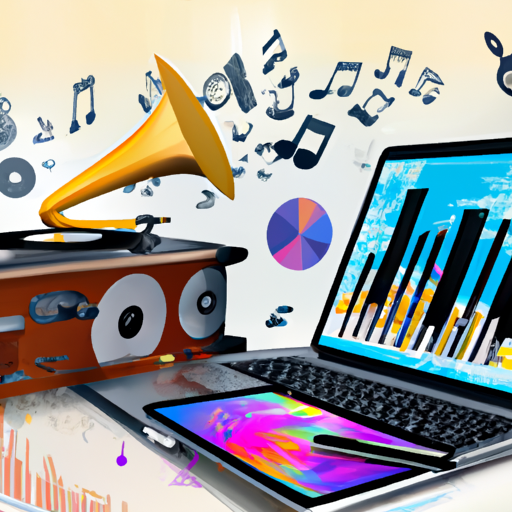Digital Streaming and the Transformation of the Music Industry
The music industry has witnessed a paradigm shift since its inception, transitioning from traditional mediums to avant-garde platforms. Beginning with vintage vinyl, cassette tapes, and CDs, the industry has now moved to digital streaming platforms, redefining not only the way we consume music but also the industry’s economic model.
The Era of Vinyl, Cassette Tapes, and CDs
Vinyl records were once the mainstream medium for recorded music until cassette tapes took the center stage, offering increased portability and reduced cost. This shift was followed by the introduction of CDs, bringing superior sound quality. CD's dominance lasted until the new millennium when digital technology began to revolutionize the industry.
The Digital Transformation
The onset of digital streaming has changed the music landscape dramatically. Platforms like Spotify, Apple Music, and Pandora have dominated the market by providing instant access to millions of songs at a minimal cost. The convenience of listening to any song, at any time and anywhere has appealed to millions of music listeners globally.
Impacts on the Music Industry Landscape
Digital streaming has beneficially impacted artists, recording companies, and listeners by offering unprecedented reach and an alternative revenue source. However, it also introduced new challenges that have stirred debates. One such issue is the equitable distribution of streaming revenue. Digital platforms pay artists for each stream, yet this remuneration is considerably lower compared to traditional album sales.
Effects on Creativity and Quality of Music
Another concern is how digital platforms might be affecting the creativity and quality of music. Some argue that the streaming model encourages quantity over quality due to its payment structure and algorithms that favor more tracks and greater frequency.
Future Trends and Developments
The music industry will continue to evolve with digital streaming at its core. The usage of Artificial Intelligence and Machine Learning can enhance personalized experiences. Additionally, blockchain technology can potentially resolve issues around copyright infringement and ensure fairer royalty payment. However, such advancements may further amplify existing challenges while bringing new ones.
Conclusion
Digital streaming has indeed revolutionized the world of music. However, it also necessitates a rethinking of the industry’s economics, creativity, and fairness dimensions. This continual transformation demands attention from stakeholders to foster a sustainable and equitable ecosystem for all members of the musical fraternity.

















Comments
Leave a Comment